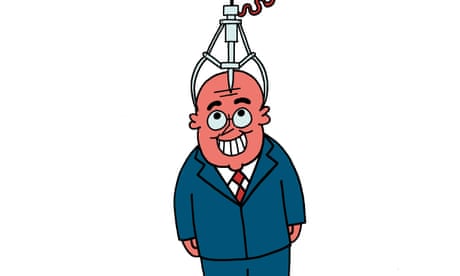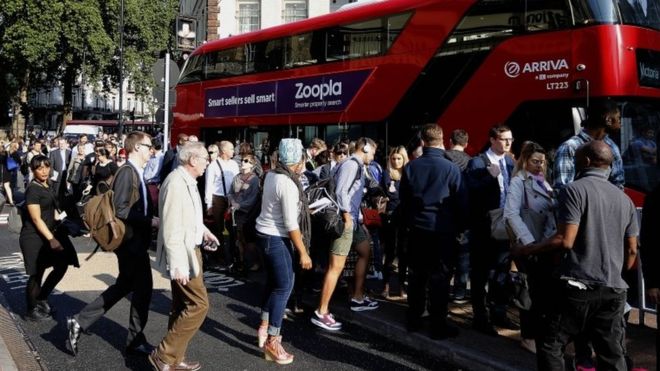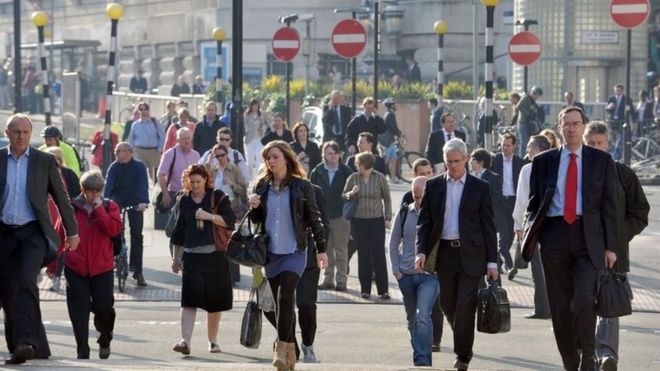
We must create a level playing field for American companies and workers!” shouted Donald Trump in his first address to Congress last month, before announcing that tighter immigration controls would take the form of a “merit-based” system.

Like so many before him, Trump was wrapping political reforms in the language of meritocracy, conjuring up the image of a “fair” system where people are free to work hard to activate their talent and climb the ladder of success.
Since becoming prime minister, Theresa May has also promised to make Britain “the world’s great meritocracy” (or, in The Sun’s phrase, a “Mayritocracy”). She reiterated this pledge when announcing her revival of the grammar schools system, abandoned in the 1960s. “I want Britain to be a place where advantage is based on merit not privilege,” she proclaimed, “where it’s your talent and hard work that matter, not where you were born, who your parents are or what your accent sounds like.”
In the wake of the 2008 financial crash, many people noticed that the meritocracy they had been taught to believe in wasn’t working. The idea you could be anything you wanted to be, if only you tried hard enough, was increasingly hard to swallow. Even for the relatively pampered middle classes, jobs had dried up, become downgraded and over-pressured, debt had soared and housing was increasingly unaffordable.
Even Thatcher presented herself as an enemy of vested interests and a promoter of social mobility
This social context, created through 40 years of neoliberalism, was reflected on TV: in Breaking Bad, being brilliant at chemistry was not enough to guarantee mainstream career progression or even survival; the evisceration of social support was the backdrop to The Wire; and the precarious creative labour depicted in Girls was very different to the glamorous stability shown a decade earlier in Sex and the City.
In the face of this instability, May and Trump have managed to resuscitate the idea of meritocracy to justify policies that will increase inequality. They use different cultural accents: Trump’s brash rhetoric panders overtly to racism and misogyny; May presents herself as a fair-minded headmistress of the home counties. But their political logic is intertwined, as indicated by the indecent haste with which May rushed to the White House post-election. Both acknowledge inequality but prescribe meritocracy, capitalism and nationalism as the solution. Both want to create economic havens for the uber-rich while deepening the marketisation of public welfare systems and extending the logic of competition in everyday life.
When the word meritocracy made its first recorded appearance, in 1956 in the obscure British journal Socialist Commentary, it was a term of abuse, describing a ludicrously unequal state that surely no one would want to live in. Why, mused the industrial sociologist Alan Fox, would you want to give more prizes to the already prodigiously gifted? Instead, he argued, we should think about “cross-grading”: how to give those doing difficult or unattractive jobs more leisure time, and share out wealth more equitably so we all have a better quality of life and a happier society.

‘May and Trump have managed to resuscitate the idea of meritocracy to justify policies that will increase inequality.’ Photograph: Stefan Rousseau/PA
The philosopher Hannah Arendt agreed, arguing in a 1958 essay: “Meritocracy contradicts the principle of equality … no less than any other oligarchy.” She was particularly disparaging about the UK’s introduction of grammar schools and its institutional segregation of children according to one narrow measure of “ability”. This subject also troubled the social democratic polymath Michael Young, whose 1958 bestseller The Rise of the Meritocracy used the M-word in an affably disparaging fashion. The first half of his book outlined the rise of democracy; the second told the story of a dystopian, meritocratic future complete with black market trade in brainy babies.
But in 1972, Young’s friend the American sociologist Daniel Bell gave the concept a more positive spin when he suggested that meritocracy might actually be a productive engine for the new “knowledge economy”. By the 1980s the word was being used approvingly by a range of new-right thinktanks to describe their version of a world of extreme income difference and high social mobility. The word meritocracy had flipped in meaning.
Over the past few decades, neoliberal meritocracy has been characterised by two key features. First, the sheer scale of its attempt to extend entrepreneurial competition into the nooks and crannies of everyday life. Second, the power it has gathered by drawing from 20th-century movements for equality. Meritocracy has been presented as a means of breaking down established hierarchies of privilege.
Even Margaret Thatcher, despite her social conservatism, presented herself as an enemy of vested interests and a promoter of social mobility. Under New Labour, meritocracy embraced social liberalism, rejecting homophobia, sexism and racism. Now, we were told, really anyone could “make it”.
Those who did “make it” – the enterprising mumpreneur, the black vlogger, the council estate boy-turned-CEO – were spotlighted as parables of progress. But climbing up the social ladder became an increasing individualised matter, and as the rich got richer the ladders became longer. Those who didn’t make it were ignored or positioned as having personally failed. Under the coalition and Conservative governments, meritocratic yearning took a more punitive turn. In David Cameron’s “aspiration nation”, you were either a striver or a skiver; the very act of hoping to reach upwards became a moral obligation. Those who could not draw on existing reservoirs of privilege were told to worker harder to catch up.
The fact is, meritocracy is a myth. Social systems that reward through wealth, and which increase inequality, don’t aid social mobility, and people pass on their privilege to their children. The Conservatives have made this situation far worse by raising the inheritance tax threshold. And their reintroduction of grammar schools would involve using extremely narrow educational measures to divide children and to privilege the already privileged (often with the help of expensive private tutors). As the geographer Danny Dorling has said, it is a system of “educational apartheid”.
“Merit” itself, moreover, is a malleable, easily manipulated term. The American scholar Lani Guinier has shown how, in the 1920s, Harvard University curbed the number of Jewish students admitted by stipulating a new form of “merit”: that of “well-rounded character”. A more recent example was supplied by the reality TV filmmaking contest Project Greenlight, in which the white actor Matt Damon repeatedly interrupted black producer Effie Brown to tell her that diversity wasn’t important in film production: decisions, he explained, have to be “based entirely on merit”. This “Damonsplaining” was widely ridiculed on social media (“Can Matt Damon tell me why the caged bird sings?”). But it illustrated how versions of “merit” can be used to ingrain privilege – unlike clear criteria for specific roles, combined with anti-discrimination policies.
It is not hard to see why people find the idea of meritocracy appealing: it carries with it the idea of moving beyond where you start in life, of creative flourishing and fairness. But all the evidence shows it is a smokescreen for inequality. As Trump, May and their supporters attempt to resurrect it, there has never been a better moment to bury meritocracy for ever.






